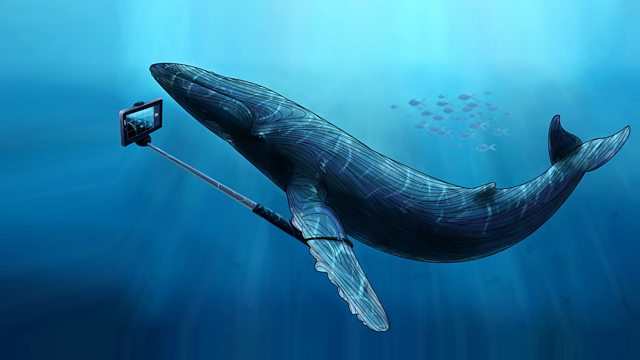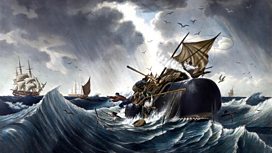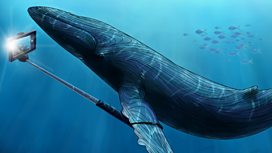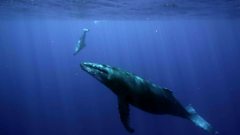Whales
Brett Westwood explores our complex relationship with the giants of the sea, whales. These enigmatic animals have undergone a transformation from feared beast to spiritual icon.
Brett Westwood explores our complex relationship with the giants of the sea, whales. These vast creatures of the sea have undergone a remarkable transformation. Once feared as sea monsters they then became a valuable resource for oil, food, blubber and bone. In the 20th century, as their numbers dwindled, they suddenly became an image of fragility - a victim of humanity's ruthlessness. They moved from roaring sea monsters to creatures that sing and represent peace, a transformation created by the media.
Although there are many species of whale ranging in size and body shape, most people have one image in their minds, a kind of super-whale that amalgamates all that is good about nature. "Save the Whale" is a household slogan." This was demonstrated by the public reaction to the Thames Whale, a female Northern bottle-nosed whale that became stranded in London 10 years ago. People went into the water to try to save her, she was photographed, written about and sung about as people became entranced by her increasingly desperate plight. She was a wildlife media sensation. After her death popular newspapers even paid for the skeleton to be preserved in a glass case rather than broken up into drawers.
The media defines our view of the whale as either a wonder to be protected or a traditional resource to be exploited. Here in the UK the removal of the national treasure that is "Dippy the dinosaur" from the foyer of the Natural History Museum, to be replaced by a blue whale skeleton, shows how much this animal means to the public today.
Last on
More episodes
Previous
![]()
How our perception of whales has been transformed in less than a generation.
![]()
The World According to Whale
Comedy with David Schneider: Lonely male whale seeks female with good sense of humour.
Clips
-
![]()
The World According to Whale
Duration: 01:55
-
![]()
How song gave whales a voice
Duration: 02:37
Richard Sabin

Dr Niels Einarsson

He has led and participated in a number of international research and scientific assessment projects with a focus on the circumpolar region, including co-editing the first , and the ongoing project, which has the primary goal of investigating environmental and social change in Arctic coastal communities.
Philip Hoare

He is also co-curator, with Angela Cockayne, of the Moby-Dick Big Read, featuring readings of Melville's book by Sir David Attenborough, Stephen Fry, Tilda Swinton and Benedict Cumberbatch.
Michael McCarthy

Professor Ralph Pite
He is currently writing a book about the poets, Robert Frost and Edward Thomas. They were close friends in the three years before Thomas’s death in 1917, at the Battle of Arras. Both men shared a love of nature and an interest in ‘the simple life’ – in ways of living, which we would call sustainable.
Broadcasts
- Tue 17 Nov 2015 11:00���˿��� Radio 4 FM
- Mon 23 Nov 2015 21:00���˿��� Radio 4






